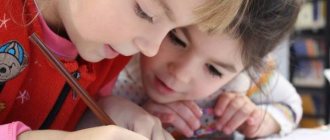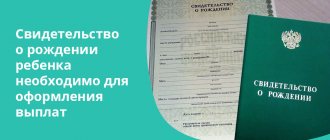You can find out about the benefits you are entitled to by calling
Recently, it has become even easier to obtain information about benefits. Since July 1, changes have been made to the Decree of the Government of the Russian Federation dated December 3, 2020 No. 1994, according to which social support measures can be found out by a single telephone number or through a chatbot on the government services portal.
A mechanism for personally informing citizens about social support measures was launched earlier. It operates on the basis of the Unified State Social Security Information System (USISSO). For example, if you have children and are registered for government services, then notifications of support are sent directly to the portal with your consent.
You will be able to learn about social support measures through the MFC from 2022.
A monthly allowance for single parents has appeared
The benefit applies to children aged 8 to 17 years.
According to Federal Law No. 151-FZ dated May 26, 2021, the following are entitled to benefits:
- parent, guardian of the child for whom child support is paid by court decision;
- the only parent indicated in the child’s birth certificate, provided that there is no information about the second parent or information about the father was entered at the request of the child’s mother;
- the only parent, if the child’s second parent has died, is declared missing or declared dead.
Conditions for receiving benefits:
- the size of the average per capita family income does not exceed the subsistence minimum per capita in the constituent entity of the Russian Federation at the place of residence (stay) or actual residence of the applicant;
- if there are several children in the family aged from 8 to 17 years, then the benefit is due for each child with a single parent or for each child in respect of whom the payment of alimony is provided.
The benefit amount is 50% of the cost of living per child in the applicant’s region. For example, in the Krasnodar Territory, the cost of living per child in 2021 is 11,114 rubles. Therefore, the benefit amount will be 5,557 rubles. per month.
Procedure for paying benefits for a child aged 8 to 17 years
When assigning benefits, a comprehensive assessment of need - this is an assessment of the income and property of the family. In addition, the zero income rule . It implies that the benefit is assigned if adult family members have income (scholarship, income from labor or business activities or pensions), or if there is no income, but this is justified by objective life circumstances.
The rules for paying benefits for children from 8 to 17 years old are established by Decree of the Government of the Russian Federation of June 28, 2021 No. 1037.
Does the state pay alimony for the debtor?
On April 3, 2021, a group of State Duma deputies from the LDPR faction proposed an amendment to the Family Code regarding state support for citizens entitled to alimony (bill No. 680786-7). Government officials are discussing the possibility of obliging the state to pay alimony to children and other needy categories of persons, starting from the 6th month of absence of payments by the person obligated for alimony.
This bill was rejected after consideration in the first reading of the State Duma. Later, other similar initiatives arose, but all of them were never adopted.
However, there is every reason to believe that alimony from the state will appear in Russia in the near future. On October 24, 2021, Vladimir Putin approved a list of instructions following an extended meeting of the Presidium of the State Council. In accordance with this document, the Government was instructed to submit proposals by August 1, 2021 to provide targeted social support to children whose parents do not pay child support. The prime minister of the Russian Federation, Mikhail Mishustin, is responsible for the implementation of this order.
The article will be updated as new information becomes available.
According to the current legislation, child support can be awarded both in shares and in a fixed sum of money (TDS):
- in a voluntary way, which involves concluding a notarial agreement;
- forcibly - through the court, if it was not possible to resolve the dispute on your own.
If the child’s mother or father leaves abroad for permanent residence, and no agreement on the payment of alimony has been reached between the parents, the interested person has the right to determine the amount of the TDS in court. The law also gives the right to provide certain property of the payer as alimony .
However, the assignment of alimony payments does not guarantee the receipt of funds into the child’s account. Vice-Rector of the Academy of Labor and Social Relations Alexander Safonov emphasizes that evasion of alimony payments is a widespread practice. Most often, fathers refuse to provide for their children and do not take part in their upbringing. According to statistics, in approximately 50 percent of cases, bailiffs cannot find debtors or collect alimony from them.
Law on payment of alimony by the state
Back in 2014, State Duma deputies O. A. Nilov, O. L. Mikheev and S. M. Mironov came up with Bill No. 489583-6, the purpose of which was to expand guarantees for children to receive alimony payments. In particular, it was said that the amount of funds collected per child should not be lower than the subsistence level in the region of residence . An exception could be difficult life situations of the alimony payer:
- disability;
- establishing the fact of serious illness;
- the need to care for a sick or incapacitated family member, etc.
In addition, deputies considered the possibility of creating a state alimony fund , from which payments would be made to needy citizens if they did not receive alimony. Unfortunately, the bill was rejected by the State Duma on July 5, 2017 and has no legal force .
There are debates in society about the advisability of making compensatory alimony payments by the state for the debtor. On the one hand, the project corresponds to state policy and will be aimed at protecting the interests of motherhood and childhood - one of the most socially vulnerable groups. However, shifting the responsibility of able-bodied family members to the state can have a number of negative consequences.
Alimony fund
The idea of creating an alimony payment fund in Russia has been discussed by government officials for a long time. It was assumed that the purpose of this structure would be to change the mechanism for paying alimony . At the moment, the claimant cannot receive funds until they are paid by the debtor.
If an alimony fund is created, then if there is a debt, funds for the child (or other disabled dependent) of the defaulter will be allocated from it. Thus, the alimony holder will no longer owe money to the collector , but to the state, which has more powerful leverage over debtors.
If the bill had been adopted, most likely, the state would have stopped compensating for child support in the same cases as when it was paid by the person obligated to pay it. These factors are regulated by Part 2 of Art. 120 of the Family Code of the Russian Federation:
- in the event of the death of one of the parties (payer or recipient of financial assistance);
- the son or daughter of the payer reaches the age of majority or the child acquires full legal capacity;
- upon the fact of adoption of a child for whom alimony was paid;
- expiration of the terms of the notarial agreement or the occurrence of circumstances that are the reason for its termination.
The adoption of a law on the creation of an alimony fund would allow women and men who do not receive alimony from their second parent for a long period of time to count on receiving compensation from the treasury. So far, no corresponding amendments have been made to the Family Code, and in 2021 there is no alimony from the state .
Banks credit benefits only to the Mir card
From July 1, 2021, all regular social payments, in accordance with Federal Law dated June 27, 2011 No. 161-FZ, must be credited to Mir cards. This will affect the category of recipients who previously received payments on cards of international payment systems - Visa, MasterCard, etc.
The requirement to have a Mir card also applies to holders of state maternity capital certificates who receive a monthly payment in connection with the birth of a second child.
Who will not be affected by the changes:
- citizens to whom social payments are credited to bank accounts not linked to a card - to a savings book, or delivered to their home or through Russian Post offices;
- citizens permanently residing outside the Russian Federation.
Protecting the rights of a child who does not receive child support
Regional authorities, although they are not able to provide decent material assistance to mothers of children left without child support, are taking a number of non-material measures to strengthen the rights of the child. Today, the following restrictions have been adopted in relation to fathers who evade child support obligations:
- inability to travel outside of Russia;
- deprivation of their driver's license for the period until child support is paid;
- restriction of rights to receive government services;
- reduction in the amount of social guarantees provided to them.
Pregnant women receive new benefits
The rules for receiving the new benefit were approved by Government Decree No. 1037 dated June 28, 2021. A one-time benefit for women who registered with a medical organization in the early stages of pregnancy (up to 12 weeks) became monthly. The amount of payments will be 50% of the regional subsistence level. The average for Russia in 2021 is 6,351 rubles, according to the Ministry of Labor.
The one-time payment for early registration, which was previously due to everyone, was cancelled.
As the Ministry of Labor explained, the benefit is paid:
- from the month of registration , if the woman applied within 30 days of registration;
- from the month of application , if the woman applied after 30 days from the date of registration until the birth.
Just as in the case of monthly payments for children aged 8 to 17 years, payments to pregnant women will be assigned taking into account a comprehensive assessment of need. That is, those who can count on benefits:
- has an average per capita family income that is less than the subsistence level in the region;
- meets property criteria (not only the size of property in the form of real estate is taken into account, but also the presence of vehicles);
- falls under the zero income rule (the benefit is assigned if adult family members have income (scholarship, income from work or business, pension) or have no income for a valid reason related to life circumstances).
Answers from the Ministry of Labor to common questions
Will a woman receive monthly benefits if the birth is scheduled for the first of the month?
- Yes, since the monthly benefit is paid for a full month including the month of childbirth.
The woman registered before July 1, which was early. Should she expect to be paid?
- She can apply starting July 1st. In this case, the benefit will be assigned from the month of application for benefits and paid until the birth.
The woman doesn't work. Will she be paid benefits?
- Anyone who is not working when they apply for benefits can receive it if they meet the zero-income rule.
What is the income compared to?
The resulting value of average per capita income then needs to be compared with something in order to understand whether we are entitled to benefits or not .
You need to compare the result obtained with twice the cost of living in your region .
Please note that the cost of living for the working population for the second quarter of the previous year . That is, in 2021 the second quarter of 2020 is taken into account.
Let's assume you live in the Moscow region . We open the table, which has already collected all the data on living wages for the 2nd quarter of 2021. Finding your region. Column "working age population" . And here is the number we need:
| Region | Per capita | Working population | Pensioners | Children |
| All Russia | 11185 | 12130 | 9236 | 11004 |
| Central Federal District | ||||
| Kostroma region | 10612 | 11569 | 8900 | 10458 |
| Kursk region | 10162 | 10927 | 8447 | 10107 |
| Lipetsk region | 9726 | 10515 | 8152 | 9840 |
| Moscow region | 13115 | 14547 | 9848 | 12688 |
| Oryol Region | 10362 | 11124 | 8606 | 10316 |
| Ryazan Oblast | 10279 | 11125 | 8552 | 10154 |
| Smolensk region | 11232 | 12088 | 9330 | 10898 |
| Moscow | 17679 | 20195 | 12487 | 15225 |
In the Moscow region, the cost of living is 14,547 rubles . Next, multiply it by 2:
14,547 rubles × 2 = 29,094 rubles
we get 29,094 rubles. To apply for benefits, the average income for each family member must be less than this amount if you live in the Moscow region.
From September 1, increased sick leave payments for child care will begin
Temporary disability benefits in the amount of 100% of average earnings are planned to be paid regardless of the employee’s length of service if sick leave is issued to care for a child under 7 years old (Federal Law No. 151-FZ of May 26, 2021).
Payout Features:
- Will be carried out directly from the FSS budget.
- No paperwork is required. The FSS makes calculations based on sick leave data automatically.
Convenient calculation of sick leave, vacation pay, maternity pay, alimony, employee accounting
Payments have been established for schoolchildren
In August - December 2021, according to Decree of the President of the Russian Federation dated July 2, 2021 No. 396, a one-time payment of 10,000 rubles will be made. one of the parents (adoptive parents, guardians, trustees) of children aged 6 to 18 years with Russian citizenship. Age 6 years must be no later than September 1, 2021.
This payment is not taken into account as part of family income when assigning other social support measures.
The Ministry of Labor announced that you can apply for a one-time benefit from July 15 to November 1, 2021 . The application is submitted in one of the following ways:
- Remotely - on the government services portal (in this case, no certificates from parents are needed);
- In person - at the Pension Fund branch. To do this, you will need the following documents: passport, child’s birth certificate, SNILS data of the parent and child, bank account details.
The application is considered by the territorial body of the Pension Fund within 5 working days from the date of its registration. If there are several school-age children in a family, one application for all of them will be enough.
The procedure and conditions for providing payments are established by Decree of the Government of the Russian Federation dated July 12, 2021 No. 1158.
The government's official website says that the first payments will begin to arrive on August 16.
Those who have a personal account on the government services portal have already started receiving notifications by email with a link to the completed application. The user needs:
- check the correctness of the data;
- confirm the automatic sending of the application to the Pension Fund.
If such a notification has not been received, then from July 15 the user can independently fill out an application in his personal account on the public services portal.
Answers from the Ministry of Labor to common questions
When exactly will the money arrive?
- The vast majority of families will receive payments on August 16.
There are two schoolchildren in the family. Will the money go to everyone?
- Yes, the payment is calculated for each school-age child. Both children can be indicated in one application.
Will I receive a payment if I am late filing my application by August 16th?
- Yes, the application can be submitted until November 1, 2021.
Who can receive the payment?
- Payments are made for children born from July 3, 2003 to August 31, 2015 inclusive.
The child is 6 years old, but is not yet going to school. Should you expect to be paid?
- Yes, since the benefit is given to school-aged children, regardless of whether they are enrolled in school. The family will receive money even if a 6-year-old child does not yet go to school or a 17-year-old teenager has already graduated from school and entered a university.
Is it possible to receive payment in cash?
- Payments are made only by bank transfer, to a card of any payment system.
Let's illustrate with an example
Let's move on to a specific example.
The Petrov family lives in the Moscow region, consists of a mother, father and daughter, who turns 1 year old on March 1, 21:
Let's consider the option when we submit an application not for the first time, that is, we extend the receipt of payment. In this case, there will be a little more important points.
So, since we submit the application on March 1, then income is taken into account starting from September 1, 2021 and until September 1, 2021:
Let's start with the father. Throughout this entire period, he received an official salary of an average of 30,000 rubles (approximately, the exact amount is in the table).
| September 2019 | October 2019 | November 2019 | December 2019 | January 2020 | February 2020 | March 2020 | April 2020 | May 2020 | June 2020 | July 2020 | August 2020 | September 2020 | |
| Father | |||||||||||||
| Wage | 29 550 ₽ | 30 060 ₽ | 28 900 ₽ | 32 560 ₽ | 30 000 ₽ | 29 450 ₽ | 30 680 ₽ | 31 000 ₽ | 28 000 ₽ | 28 500 ₽ | 29 990 ₽ | 30 020 ₽ | 30 150 ₽ |
With the mother's income, not everything is so simple.
Until January 2021, she worked officially and received 20,000 rubles per month (approximately). Starting in January, she goes on maternity leave and receives a one-time maternity benefit in the amount of 91,520 rubles . Then, when a child is born on March 1, the family receives a one-time benefit for the birth of a child (13,115 rubles) and two monthly benefits - the first - for caring for a child up to one and a half years old in the amount of 7,860 rubles and the second - the same Putin payments for the first period from 0 to 1 year:
| September 2019 | October 2019 | November 2019 | December 2019 | January 2020 | February 2020 | March 2020 | April 2020 | May 2020 | June 2020 | July 2020 | August 2020 | September 2020 | |
| Father | |||||||||||||
| Wage | 29 550 ₽ | 30 060 ₽ | 28 900 ₽ | 32 560 ₽ | 30 000 ₽ | 29 450 ₽ | 30 680 ₽ | 31 000 ₽ | 28 000 ₽ | 28 500 ₽ | 29 990 ₽ | 30 020 ₽ | 30 150 ₽ |
| Mother | |||||||||||||
| Wage | 20 150 ₽ | 19 260 ₽ | 18 590 ₽ | 20 260 ₽ | |||||||||
| we take benefits. and childbirth | 91 520 ₽ | ||||||||||||
| one-time at birth | 13 115 ₽ | ||||||||||||
| child care up to 1.5 | 7 860 ₽ | 7 860 ₽ | 7 860 ₽ | 7 860 ₽ | 7 860 ₽ | 7 860 ₽ | 7 860 ₽ | ||||||
| Putin's payments | 12 688 ₽ | 12 688 ₽ | 12 688 ₽ | 12 688 ₽ | 12 688 ₽ | 12 688 ₽ | 12 688 ₽ |
As we have already written, income does not take into account those payments that citizens receive as part of the same benefit . So we immediately rule out “Putin’s” payments.
Now let's calculate the total family income for a period of 12 months .
So, the father receives a total salary of 388,860 rubles for 12 months. For the mother: for wages we receive 78,260 rubles in total, then there are two benefits that were paid once, we also include them without changes. Further, the child care allowance amounted to 55,020 rubles (we include it), and we do not take into account “Putin’s” payments:
| September 2019 | October 2019 | November 2019 | December 2019 | January 2020 | February 2020 | March 2020 | April 2020 | May 2020 | June 2020 | July 2020 | August 2020 | September 2020 | sum | |
| Father | ||||||||||||||
| Wage | 29 550 ₽ | 30 060 ₽ | 28 900 ₽ | 32 560 ₽ | 30 000 ₽ | 29 450 ₽ | 30 680 ₽ | 31 000 ₽ | 28 000 ₽ | 28 500 ₽ | 29 990 ₽ | 30 020 ₽ | 30 150 ₽ | 388 860 ₽ |
| Mother | ||||||||||||||
| Wage | 20 150 ₽ | 19 260 ₽ | 18 590 ₽ | 20 260 ₽ | 78 260 ₽ | |||||||||
| we take benefits. and childbirth | 91 520 ₽ | 91 520 ₽ | ||||||||||||
| one-time at birth | 13 115 ₽ | 13 115 ₽ | ||||||||||||
| child care up to 1.5 | 7 860 ₽ | 7 860 ₽ | 7 860 ₽ | 7 860 ₽ | 7 860 ₽ | 7 860 ₽ | 7 860 ₽ | 55 020 ₽ | ||||||
| Putin's payments | 12 688 ₽ | 12 688 ₽ | 12 688 ₽ | 12 688 ₽ | 12 688 ₽ | 12 688 ₽ | 12 688 ₽ | 0 ₽ |
The total annual income is 626,775 rubles. Divide by 12 to find out the average monthly income per family - 52,231 rubles, and divide by 3 to find out the income per 1 family member. We get a figure equal to 17,410 rubles :
| September 2019 | October 2019 | November 2019 | December 2019 | January 2020 | February 2020 | March 2020 | April 2020 | May 2020 | June 2020 | July 2020 | August 2020 | September 2020 | sum | |
| Father | ||||||||||||||
| Wage | 29 550 ₽ | 30 060 ₽ | 28 900 ₽ | 32 560 ₽ | 30 000 ₽ | 29 450 ₽ | 30 680 ₽ | 31 000 ₽ | 28 000 ₽ | 28 500 ₽ | 29 990 ₽ | 30 020 ₽ | 30 150 ₽ | 388 860 ₽ |
| Mother | ||||||||||||||
| Wage | 20 150 ₽ | 19 260 ₽ | 18 590 ₽ | 20 260 ₽ | 78 260 ₽ | |||||||||
| we take benefits. and childbirth | 91 520 ₽ | 91 520 ₽ | ||||||||||||
| one-time at birth | 13 115 ₽ | 13 115 ₽ | ||||||||||||
| child care up to 1.5 | 7 860 ₽ | 7 860 ₽ | 7 860 ₽ | 7 860 ₽ | 7 860 ₽ | 7 860 ₽ | 7 860 ₽ | 55 020 ₽ | ||||||
| Putin's payments | 12 688 ₽ | 12 688 ₽ | 12 688 ₽ | 12 688 ₽ | 12 688 ₽ | 12 688 ₽ | 12 688 ₽ | 0 ₽ | ||||||
| final income for 12 months | 626 775 ₽ | |||||||||||||
| in 1 month | 52 231 ₽ | |||||||||||||
| for 1 person | 17 410 ₽ | |||||||||||||
By the way, you can download the table above in a more convenient format.
We return to the table with cost of living , find your region and look at the “working-age population” column . We multiply 14,547 by 2 and get 29,094 rubles .
As we can see, our result (17,410 rubles) is much less than the double subsistence minimum ( 29,094 rubles ).
Consequently, the Petrov family has the right to a benefit, which for them is equal to 1 subsistence minimum per child in the Moscow region for the second quarter of 2021, that is, 12,688 rubles per month .
A procedure for informing about future pensions has been developed
From 2022, the Pension Fund will begin notifying citizens about the expected amount of the old-age insurance pension and pension savings.
Notifications will be sent once every 3 years to men over 45 years of age and women over 40 years of age. Information will be available:
- in your personal account on the government services portal;
- when applying to the territorial body of the Pension Fund.
It is expected that such a mechanism will allow citizens to assess in advance the formation of their future pension rights and, if necessary, take actions to increase them.









